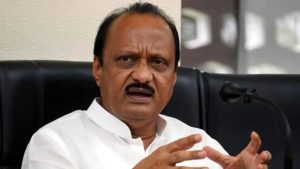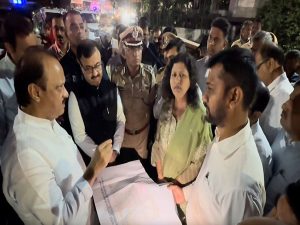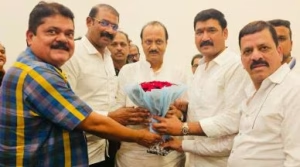Ajit Pawar Reviews Development Projects in Pune’s Pimpri-Chinchwad and Beed
Deputy Chief Minister Ajit Pawar recently undertook a comprehensive review of development projects in Pimpri-Chinchwad and Beed, two regions in Maharashtra that represent very different faces of growth. While one is rapidly urbanizing with industrial momentum, the other continues to grapple with rural challenges. Pawar’s visit aimed to bridge these realities by ensuring both areas receive the attention they need.
Focus on Infrastructure and Urban Pressure in Pimpri-Chinchwad
Pimpri-Chinchwad, a bustling industrial city near Pune, has been expanding at a remarkable pace. The influx of people and industries has created pressure on roads, housing, transportation and basic civic amenities. During his visit, Ajit Pawar sat down with municipal officials, engineers and local representatives to discuss the progress of key infrastructure projects including metro connectivity, road expansions and housing schemes.
The Deputy CM made it clear that progress must be visible on the ground. “Citizens don’t want excuses. They want results,” he said during a review meeting. His tone was firm but encouraging, urging departments to work together instead of functioning in silos.
He emphasized the importance of coordination among government agencies and warned against bureaucratic delays. “When one department digs up a road, another should not delay repairs. We cannot allow disjointed efforts to inconvenience the public,” Pawar said.
Accountability and Quality Over Speed
One of the recurring messages in Pawar’s meetings was that the quality of work should not be compromised for speed. He reminded officials that infrastructure projects are long-term investments and should serve people well for decades. “It’s not just about completing a project. It’s about doing it right,” he said.

He also directed departments to conduct regular audits and updates, adding that any lapses in standards would be dealt with seriously. This hands-on approach was appreciated by many in the local administration, who felt it brought a sense of urgency and accountability to ongoing projects.
A Ground-Level View in Beed
After his review in Pimpri-Chinchwad, Ajit Pawar visited Beed district, which faces a very different set of challenges. Beed, located in the drought-prone Marathwada region, struggles with water scarcity, underdeveloped roads and limited access to quality healthcare and education.
In Beed, Pawar met with district officers, members of the zilla parishad and residents to review irrigation projects, rural road works and the delivery of government welfare schemes. His message remained consistent—development must reach every village and every citizen.
Listening to People Firsthand
In one heartwarming moment, Pawar took time out of his schedule to interact with local farmers and school children. Sitting under the shade of a tree, he listened to their stories and concerns, noting suggestions from farmers about improving crop support schemes and from students about school infrastructure.
“The government must listen before it acts,” he told a group of villagers. “Only then can we make the right decisions.”
No Tolerance for Delays or Corruption
Throughout his visit, Pawar made it clear that he expects transparency and dedication from all departments. He reiterated that public funds must be used wisely and warned that there would be no tolerance for negligence or corruption.

He encouraged officials to report challenges honestly and work together to find solutions. “This is not just about showing progress on paper. We need results that people can feel in their daily lives,” he said.
Looking Ahead
Pawar’s visits to Pimpri-Chinchwad and Beed reflect the state government’s commitment to balanced and inclusive development. Whether it’s a growing city needing smarter infrastructure or a rural area needing basic amenities, the aim is the same—to improve lives.
His direct, people-first approach has raised expectations. The challenge now is for departments to convert this momentum into meaningful, long-lasting change. For the citizens of both regions, Pawar’s message was clear—development is not a promise, it’s a responsibility.

